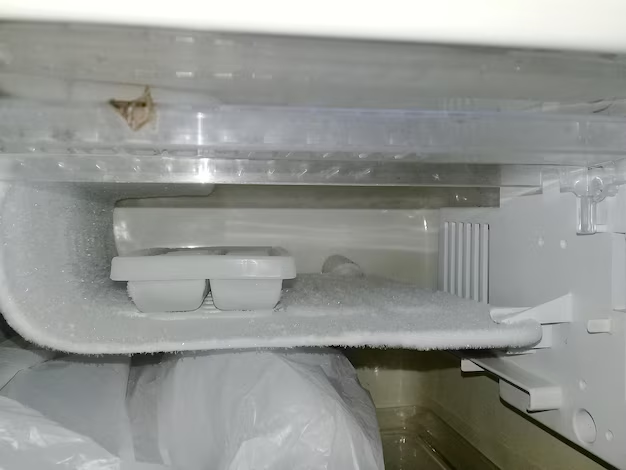What You Need to Know Before Throwing Away Your Old Refrigerator
Imagine the time has come to replace your trusty, albeit old, refrigerator with a new model that promises efficiency and style. The excitement of a new appliance can quickly be overshadowed by the question: "Can I simply throw my old refrigerator in the trash?" This is a common query among homeowners, but the answer isn't as straightforward as you might hope. Let's dive deep into the topic to uncover the best practices for disposing of an old refrigerator.
Why You Can't Just Throw a Refrigerator in the Trash
The Complexity of Refrigerator Disposal
Refrigerators are not your everyday waste item. They contain components that require careful handling to prevent environmental damage. Disposing of a refrigerator improperly can lead to various issues, from environmental harm to legal repercussions.
Environmental Concerns
The heart of the matter lies in the hazardous materials found in refrigerators, such as refrigerants. These substances are known to contribute significantly to ozone layer depletion and climate change if not managed properly. Furthermore, parts made from metals, plastics, and insulation materials can take a long time to decompose naturally, adding to landfill pollution.
Important: Always check local regulations regarding the disposal of hazardous materials. Proper handling is crucial to avoid environmental damage.
Legal Ramifications
Many jurisdictions have stringent laws about how appliances like refrigerators should be disposed of. Failing to adhere to these laws can result in fines or other penalties. Therefore, understanding and complying with these regulations is essential.
Tip: Consult your local waste management authority for specific guidelines regarding appliance disposal in your area.
How to Dispose of a Refrigerator Responsibly
Professional Removal Services
One of the most straightforward methods is hiring a professional service for refrigerator disposal. These entities are equipped to handle the transportation and dismantling of old appliances responsibly.
Benefits of Professional Services
- Convenience: They handle the heavy lifting and transportation.
- Compliance: Professionals ensure that disposal aligns with environmental regulations.
- Peace of Mind: Knowing that your appliance is being recycled or disposed of properly can be rewarding.
Recycling Programs
Recycling is an environmentally friendly option that prevents harmful substances from entering landfills. Many communities offer recycling programs designed for large appliances.
How Recycling Works
- Collection: Some programs include a pick-up service, while others require you to drop off the appliance.
- Processing: The appliance is dismantled. Hazardous materials are safely removed, and metals and plastics are recycled.
- Recycling Centers: Contact local recycling centers to understand their process and regulations.
Retail Takeback Programs
When purchasing a new refrigerator, inquire if the retailer offers a takeback program. Many appliance stores will remove your old fridge when delivering a new one, often free of charge.
Example: Some stores may offer this service as part of their delivery package, ensuring easy and compliant disposal.
Alternatives to Disposal: Reuse and Repurpose
Donate or Sell
Before discarding a functional refrigerator, consider whether it could be of use to someone else. Donating or selling it can extend the appliance's life and provide cost-saving benefits to others.
Where to Donate or Sell
- Charitable Organizations: Nonprofits may need kitchen appliances for shelters or other facilities.
- Online Marketplaces: List the appliance on platforms dedicated to used goods.
Repurpose for Other Uses
If you're inclined to keep your refrigerator, consider repurposing it. An old fridge can be transformed into a storage unit for the garage or a creative project.
Creative Ideas:
- Storage: Use it as a tool cabinet or for non-perishable storage in a basement.
- Work Projects: With some DIY skills, convert the fridge into a stylish beverage cooler.
Navigating Local Regulations and Policies
Understanding Local Disposal Laws
Local waste management policies play a crucial role in appliance disposal, and they can vary significantly depending on your location. It's vital to familiarize yourself with these regulations to avoid legal issues.
Actionable Tip: Reach out to your city's waste management department or visit their official website for up-to-date information on appliance disposal.
Safety Precautions
Ensure safety by undertaking actions such as removing the refrigerator doors to prevent accidents if storing the unit on your property before disposal.
Note: There have been numerous safety concerns about children becoming trapped inside discarded refrigerators.
Summary of Key Steps for Refrigerator Disposal 🌟
Here's a handy list of steps and options available for those looking to dispose of their old refrigerator:
- Understand Local Regulations: Check what laws or guidelines apply in your area.
- Consult Professionals: Consider hiring a disposal service for a hassle-free experience.
- Explore Recycling Programs: Look for free or discounted community-based options.
- Inquire About Takeback Services: Ask retailers about programs when purchasing a new appliance.
- Consider Donation or Sale: If functional, give your appliance a second life.
- Repurpose Creatively: Transform the fridge for alternative uses if you're up for a project.
By following these steps, you not only adhere to legal requirements but also contribute to environmental conservation efforts. Proper disposal, recycling, or repurposing can greatly impact reducing waste and promoting sustainable practices.
It's clear that while you might not be able to mindlessly toss your old refrigerator into the trash, there are plenty of avenues available for responsible disposal. Understanding these options and requirements makes finding the right path for your situation simpler – ensuring the world remains pristine for future generations.

